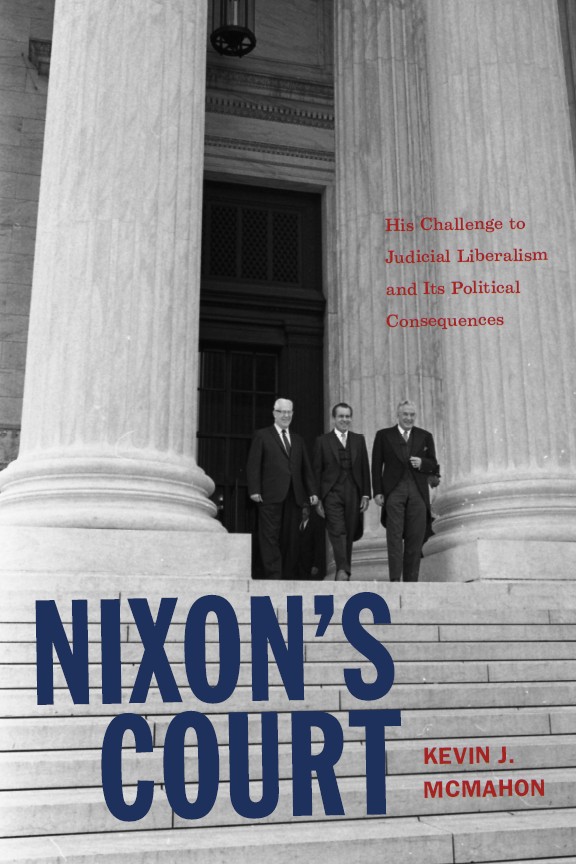In Nixon’s Court, presidential scholar Kevin J. McMahon offers a persuasive revisionist account of the judicial legacy of Richard Nixon. Critics argue that Nixon waged a jurisprudential “counter-revolution” against the Warren Court that eventually “failed” (Dworkin 1972; Blasi 1983). Using archival records, McMahon argues that the judicial nominations and legal actions Nixon undertook during his first term were driven by “politics far more than ideology” (p.6).
Rather than total revolt against the Warren Court, McMahon posits, Nixon engaged in a limited, opportunistic strategy. He publicly opposed judicial decisions in a few politically potent areas –busing for school desegregation and crime – and put political symbolism over ideology when selecting Supreme Court nominees. Nixon did this seeking to expand his Republican base with two components of the New Deal Democratic coalition: southerners and working-class, often Catholic voters in the urban North. But even in the areas of school desegregation and crime he made little attempt to overturn Warren-era precedents or to refuse to enforce Supreme Court’s decisions. He even benefitted from public perception and backlash against the Court. Based on his re-election in 1972 and later decisions concerning crime and busing, McMahon concludes, “on the issues Nixon most cared about” he essentially got what he wanted (p.252).
McMahon situates Nixon’s approach to the courts within the context of his narrow victory in 1968 and the re-election battle he expected in 1972. Facing Democrat Hubert H. Humphrey and the independent candidacy of Alabama Gov. George C. Wallace, Nixon needed to construct an electoral majority by adding disaffected Democrats without losing his GOP base.
Read the rest here.
